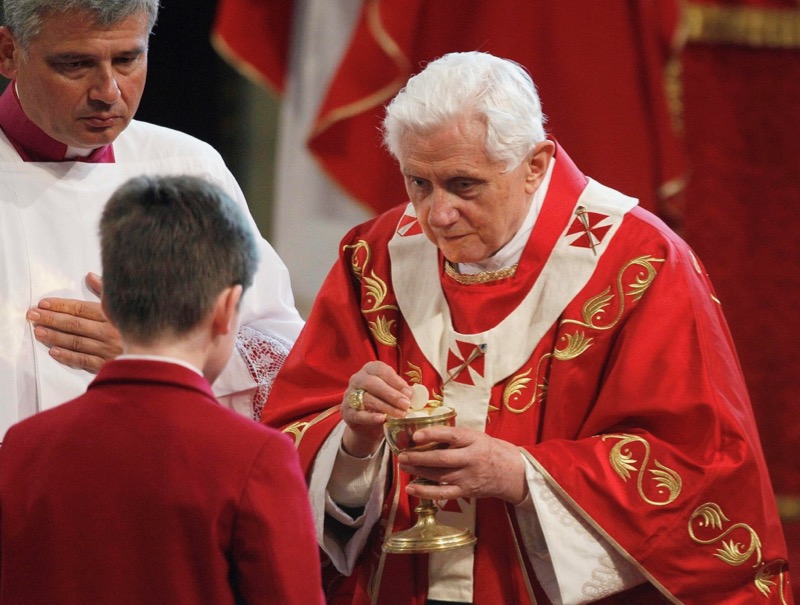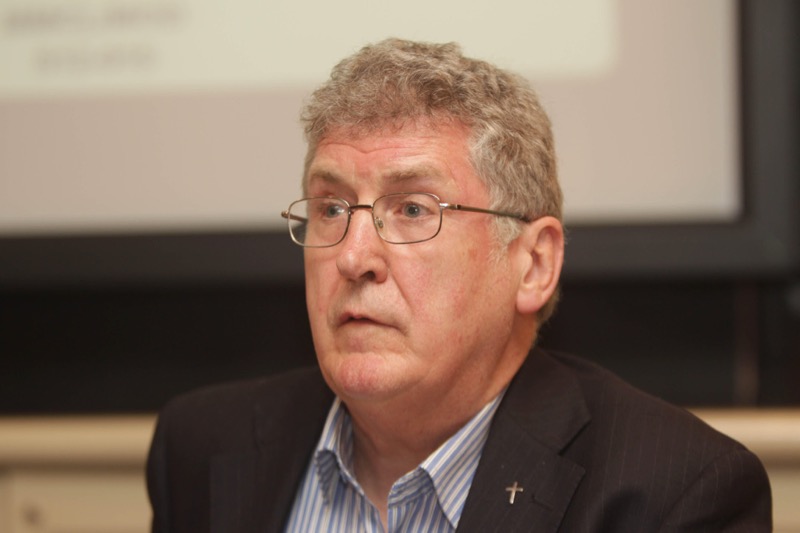A Columban priest and Justice and Peace campaigner called for better regulation of advanced technology during The Tablet’s 27 January webinar, Robots, drones and smart churches? Catholic Social Teaching and the Artificial Intelligence Revolution.
In a session chaired by Natalie K Watson, Publishing Editor of the Pastoral Review, Fr Seán McDonagh was introduced as an “eco-activist”, who has been a “trailblazer” with his books on environment and faith and whose most recent book is Robots, Ethics and the Future of Jobs. His interest in this topic started six years ago when he felt that although new technologies are influencing every part of our lives there is little scrutiny. He felt the churches have a role to help ensure a “human-centred future”, looking at the issue from religious and ethical perspectives. “We mustn’t let corporations alone drive the future,” he added. “We need changes that benefit everyone, not just the few.”
Fr McDonagh acknowledged the benefits of huge advances in technology, singling out diagnostics in medicine, such as the prediction of heart attacks, and new technologies for eye surgery. And of course, coping with the Covid-19 pandemic has been helped by widespread remote communication, helping people to stay connected and work during lockdown. Terms such as “zooming” and “webinars” have become commonplace.
|
Listen to the podcast of the webinar here.
|
However, he echoed the concerns of Pope Francis about the “technocratic paradigm” and felt new technologies should be an issue in the synodality process when discussing the future of the Church and worship. Fr McDonagh took the view that worship is about community and virtual services, “are not what community and Eucharist have meant to people.” Streaming services have been a lifeline during the pandemic, but the ideal is people coming together in participatory liturgies. He called for dialogue: Can relationships through our computer be more real than our local and parish communities? How far should churches become “smart churches” – reaching out through web, mobile, video, social media and email marketing?
Yet, his concerns were broader. He felt uneasy about the techniques used by companies who control advanced technology to keep people on their phones, for example the phone buzzing when messages come in. He warned about the negative impacts on privacy, that the big tech companies record our data and our faces are increasingly on record with the rise of facial recognition. He asked: “How often do we click on permissions without reading? How long should platforms such as Google be allowed to keep information on each of us?”
He added: “I don't think information should be held beyond six months.” He warned that there are still too few curbs on hate speech inline.
There are implications for work. Robots are already being used in care homes, to patrol at night, and for 3D printers, and autonomous vehicles. Fifteen million jobs in the UK could be lost through automation and robots. “How will people live in the future if 50 per cent are without jobs?” he asked, calling for more work to be available for people, a universal basic income so that people have a secure income and for large corporations and tech billionaires to be taxed far more heavily than they are now, which will contribute financially towards the changes.
He felt journalism is being undermined by new media, which will have a huge impact on democracy, which needs good journalism. “If journalism is undermined, who do we trust?” he asked, and suggested that faiths have an important role to play in media, stressing the importance of truth.
Fr McDonagh noted that “artificial intelligence offers a masculine view of the world”, pointing out that only 22 per cent of jobs in artificial intelligence are held by women. The issue of the use of drones in warfare was raised by participants. He described this as a chilling issue because military drones can be launched from more than 500 miles away, with no danger to the perpetrator. “Religious people need to engage with this,” he said.
Fr McDonagh’s focus on the issue was thought to be timely and necessary. It is a big departure for him for he is better known for his work on Ecology and Creation Theology. Yet, he felt that he is “looking at what is coming down the track” and that the Church should do the same and read the “signs of the times”. Fr McDonagh said people cannot stumble into the future with these powerful technologies in an ethics-free environment. He wants corporate responsibility enforced, and labour unions to be encouraged. Catholic Social Teaching views work as central to an individual's self-worth. There should be more valuing of human interaction and human rights.
The webinar was an alert to pay more attention to where we are going with advanced technology, that the same tools that we use to connect, protect and support us can also be put to use in ways that have a huge negative impact on privacy, freedom and life choices. The digital future is fast approaching with little regulation and few institutional policies and protections. Respect for human rights must be at the heart of these new technologies.
Fr McDonagh had a particular concern for indigenous peoples – having worked with the T’boli in the Philippines – who, from the Philippines to Congo and Chile are being impacted by extractive industries seeking out transition minerals such as Lithium for electric cars and Cobalt for mobile phones. Transition minerals should be sourced responsibly.
Concluding the event, Fr McDonagh compared the lack of awareness about robots to the lack of awareness about the environment three decades ago when he wrote his first book, To Care for the Earth. He felt there “needs to be political action to stop three or four companies determining our future”. The Tablet was thanked for drawing attention to the issue.
Fr McDonagh felt religion has a lot to offer in the area of ethics and would love to see a Vatican document on these new technologies. New communications offer valuable technologies but we need to monitor them. “Society should be in charge, not a few tech companies,” he concluded.
Watch a short extract from the beginning on YouTube.
Robots, Ethics and the Future of Jobs by Seán McDonagh is published by Messenger Publications.



 Loading ...
Loading ...